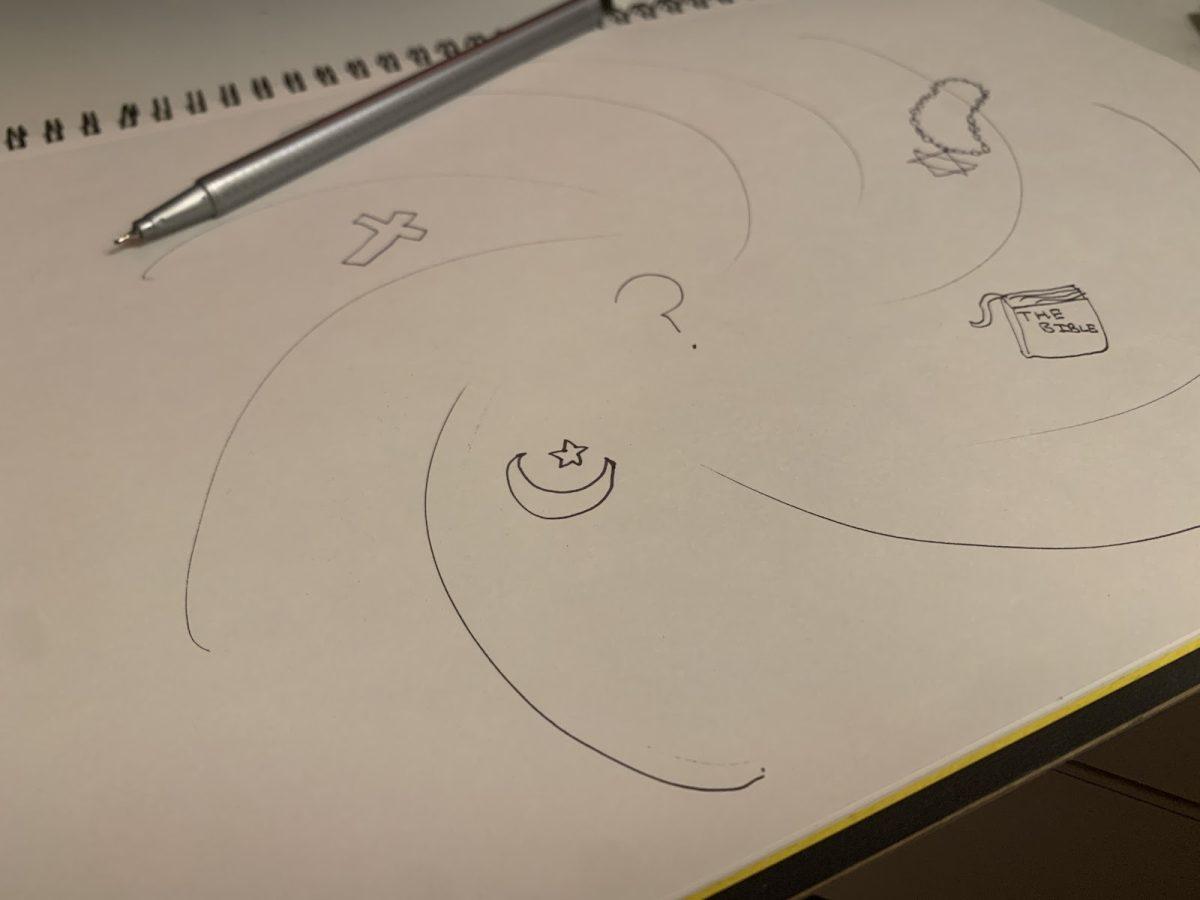In American society today, people increasingly identify as religiously unaffiliated, with a 2021 survey from Pew Research Center clocking the number in at 29 percent of the population (including atheists, agnostics, and those who describe themselves as “nothing in particular”). While there will always be debate as to what purpose religion serves on a larger societal level, there are some undeniable common threads in how religion serves individuals. To seek meaning is to be human, and religion is a common vessel for that instinct. The same goes for other themes, like morality, hope, and introspection. So what do non-religious people do with all this spectacular messiness that comes along with the human experience?
Journaling is one way to organize the chaos of reality. For some people, it can be an aspect of their religious or spiritual practice, but it’s a valuable method of introspection for everyone, regardless of their faith (or lack thereof). Writing things down can help us make sense of our experiences, and try to distill what they mean to us, both personally and as a part of a bigger picture. This kind of introspection is also a way to figure out what it is that we do believe (most people do believe in something, when you boil it all down, even if it’s a belief in the value of logic and reason). It’s easy, religious or not, to dodge the interrogation of what exactly we believe, why, and what the implications of those beliefs are. For those who aren’t as keen on writing, audio or video recordings for personal archives might accomplish a similar purpose.
Organized religions can also offer avenues to live out shared beliefs through community service, another way to build out both meaning and morality. The cool thing is that individuals can get involved with their neighborhoods, communities, or valued causes without any sort of religious organization. So for those who want to feel like they’re tangibly improving the world, directly tackling issues they care about, even if it’s on a smaller scale, can be one way to get that same sense of fulfillment.
Prayer or meditation can bring a powerful sense of calm to those who practice it, in addition to the scientifically-backed cognitive benefits of regular meditation. It’s important to mention that meditation in its original form is not a secular practice, with its earliest records in Hindu texts. Meditation (or mindfulness, as it’s often called today) does have religious roots, even if it’s been adopted by the secular mainstream, and has ties to many religions, including Buddhism, Hinduism, Jainism, Judaism, and Sikhism. That’s not to say that meditation is something that is or should be only practiced by people who consider themselves religious, but rather a call to include the cultural context of meditation in its study and practice. Nic Johnson, who teaches mindfulness classes at Franklin, thinks that secular applications of mindfulness are powerful tools for teens today, who face increasing levels of reported depression, anxiety, and stress. Fundamentally, he says, “mindfulness centers a mindset of receptivity, non-judgment and awareness, so that we invite ourselves to come into a ‘felt contact’ with our lived experience.” Mindfulness takes many forms; it can certainly be something done with the assistance of an app or a YouTube video, but it doesn’t need to be more complicated than simply sitting in silence for a period of time and noticing your breathing. Walking or movement can be its own mindfulness practice as well.
This is perhaps more of a personal recommendation than a fully universal one, but reading, be it fiction or nonfiction, poetry or prose, can be something that’s fulfilling on this moral, deeply human (though not necessarily spiritual) level. As with my other ideas, this too is one to be customized. Reading could be a book or a single poem, a paperback or an audiobook, a set-aside day, or a 15-minute podcast. It doesn’t have to be material that’s deemed meaningful by others either, simply something that brings you a sense of fulfillment.
There is value in ritual too. Having these regular practices as a part of a routine can offer comfort and stability, especially when it feels like the world is falling apart (which is much of the time these days).
Connecting with a sense of meaning and purpose isn’t something that’s exclusive to religion, and for people who have complex relationships with religion, finding avenues to personal fulfillment separate from religion is just one tool to support overall well-being.

































